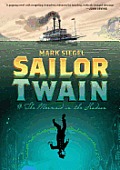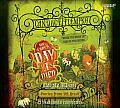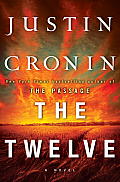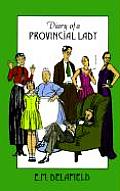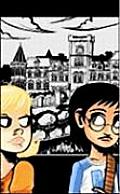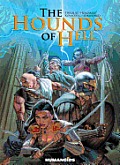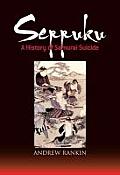Link to this review in the form of a comic strip by geneambaum tagged graphic novel • historical fiction
Link to this review by danritchie tagged science fiction • mystery
Montauk is a small resort town with a mystery. There has long been speculation that Hero Park, which was a military installation during World War II, hides a top secret compound beneath the old bunkers and gun placements.
Lydia, a seventeen-year-old high school journalist, has visited the park many times with her grandfather. He’s obsessed with searching there for evidence of the secret government agency his father was working for when he disappeared in 1944.
When Lydia finds a bunker door ajar, she goes looking for answers for her grandfather. She stumbles into a time portal while being pursued by one of the guards. He is reluctant to shoot her as he should, and both are transported back to the week before her great-grandfather disappeared. Together they try to unravel the secrets that surround the Montauk Experiment, knowing that every decision she makes could alter her life and the lives of her family.
Why I picked it up: I am always looking for a fresh take on time travel.
Why I finished it: Though urged desperately by her companion, Wes, to try to return to the present immediately, Lydia chooses to stay in the past to try to prevent her great-grandfather’s disappearance. The sense of urgency of Lydia’s quest and the uncertainty of her return to the present were compelling.
I’d give it to: My friend Ryan. He will enjoy the story’s increasing suspense as well as the realistic details of life during the war: rationing, dungarees and the girls with their “fellas.”
Link to this review by snow tagged paranormal • anthology • audiobook
Mike is driving down a deserted road outside of Chicago, late for his curfew and trying to ignore a call from his mother, when he spots the girl. She’s soaking wet, wandering down the middle of the road. He offers to take her home, then makes a terrifying discovery: the girl is a ghost. She needs to bring a stranger to a graveyard for teens so that the other ghosts can tell their stories. And tell they do, from Gina, whose tendency to exaggerate meant that no one believed her about the pyromaniac at school, to Edgar, a boy who was given to fits of madness. Lily discovered, to her eternal damnation, that wishing on a monkey’s paw did not bring back her lost love, and Tracy got more than she bargained for when she snooped through the junk in her great-aunt’s house.
Why I picked it up: I like spooky stories, especially listening to them during my sunny, morning commute.
Why I finished it: Each story is read by a different person. Many of them actually sound like they are teenagers, which brings a sense of realism to the otherwise fantastic tales. The transitions between Mike’s story and the stories told by the ghosts are beautifully done. Also, Fleming is adept at both creating atmosphere (very important for ghost stories) and at crafting dialogue that makes each character stand out.
I’d give it to: The Connor family, for their next road trip. The stories are creepy enough to appeal to thirteen-year-old Alex, but not so scary that they’ll give his eleven-year-old sister Vickie nightmares. Matt (dad) will like that the stories often have a moral (these are subtle enough not to put off the kids), and Connie (mom), a Chicago native, will appreciate the author’s note, read by Fleming herself, which talks about the historical inspiration and the way each story is tied to her hometown.
Link to this review by billba tagged science fiction • fantasy • thriller
A return to the viral-ridden world of The Passage, with a few familiar characters and a lot of new ones.
Why I picked it up: “Picked it up?” It would be more accurate to say that I stalked the Random House staff, emailing and phoning, until they finally found me an ARC. Did I rashly promise them things I couldn’t deliver? Maybe. Did I attempt to barter my first-born male child? Perhaps. Two years after reading The Passage I still call it “The best Stephen King novel ever written.” I was desperate to find out what happened next.
Why I finished it: The Twelve doesn’t immediately pick up where the last book left off. It rewinds to the beginning of the outbreak, with the story of Last Stand in Denver, a man who becomes famous by documenting his resistance to the virals on YouTube until he runs out of electricity and Internet. Of course that’s what someone would do in the midst of an apocalypse.
I’d give it to: My fellow aspiring novelist Jeanne so we can discuss the dark (and all-too-believable) Homeland, where surviving humans are enslaved by unseen leaders. It totally reminded me of A Day in the Life of Ivan Denisovich. But, you know, with vampires and stuff.
Link to this review by sarahhunt tagged humor • historical fiction
A hilarious novel in the form of the diary of a woman running a country household in England. She copes with overdue bills, tries to keep a housemaid in a boring neighborhood, and attempts to be a modern parent while her kids climb all over the furniture.
Why I picked it up: I cracked it open while weeding and laughed at the first page: the narrator is trying to pot her hyacinths when Lady Boxe, mistress of the local manor house, drops by and almost sits on the bowls and the bag of charcoal in the armchair.
Why I finished it: It reminded me of the best bits of the Jeeves and Wooster books and the essays of S. J. Perelman. The humor is dry and there’s just the right amount of things spiraling out of control.
I’d give it to: Anne, who gossips about Downton Abbey with me, for the way the book’s protagonist bonds with her neighbors by comparing notes on how awful Lady B. is. But she’s also embarrassed when Lady B. happens to drop by while she and her son are making the clock chime, the music box play, play the piano, and play the gramophone at the same time because he thought it might sound like a symphony.
Link to this review by geneambaum tagged coming of age
Juniper is the new scholarship student at the prestigious and expensive Ellsmere Academy. Jun makes friends with her roommate, Cassie. But other girls target Jun after she stands up for herself and starts to inspire others to do so, too.
Why I picked it up: I really enjoyed Hicks’ Friends with Boys and wanted to read this again.
Why I finished it: As the students are being welcomed back, Jun is mocked by one of the rich girls. She turns things on their head by making a speech about the bully’s profound inner insecurity. Great scene!
I’d give it to: Laura, who would find the idea of school uniforms as distasteful as Juniper does.
Link to this review by geneambaum tagged graphic novel • fantasy • historical fiction
Sixth century AD. Theodora Augusta, Empress of the Eastern Roman Empire (and wife to Justinian), continues to worship the old gods in secret. She calls together a fearsome band of mercenaries, the Hounds of Hell, who disbanded after one of their companions died.
The Hounds believe their mission is to retrieve a treasure guarded by Pluto and his demons in Tartarus. But the Empress has other goals in mind.
Publisher’s Note: Suggested for Mature Readers.
Why I picked it up: It has a great cover featuring the five members of the Hounds of Hell with their weapons drawn, ready for battle.
Why I finished it: I expected a straightforward quest with a few bumps along the way. But things go away from the plot I expected in a way that I only find in European graphic novels. I had no idea where this would end.
I also loved that the fights were absolutely brutal. (I usually do.)
I’d give it to: Dave, who would enjoy the acrobatic Three Hands. The fingers on this mercenary’s left hand were cut off when he was young, so he learned to do everything with his feet, including wield a sword.
Link to this review by flemtastic tagged coming of age
Travis (Marine nickname: Solo) has returned from Afghanistan for a one month leave at the “suggestion” of his commanding officer. The Dear John letter he got in-country was accurate; his little brother stole his girlfriend and his car while he was gone, and his parents are fighting over accusations of infidelity. The only bright spot is seeing Harper again. He’s been interested in her since they kissed at a junior high party. But the first thing she does is punch him in the face because he never spoke out against rumors that she was a slut. Things get better as Travis and Harper slowly start a relationship, despite Travis’ problems. He can’t see a psychologist for his PTSD because that could harm his military career. Only his Marine buddies Kevlar and Moss make him feel normal. And he’s having trouble dealing with the death of his best friend Charlie in Afghanistan — Travis must make a difficult trip to Florida to talk to Charlie’s mother.
Why I picked it up: Lauren Myracle’s cover blurb praised the book, and I was hoping this would read like Dana Reinhardt’s The Things a Brother Knows, which is also about a soldier dealing with civilian life.
Why I finished it: Travis is a bumbling idiot in some ways. I was rooting for him, but then he would do something ridiculous, like sleep with an ex-girlfriend while getting to know Harper. Harper is a great character, too. She shows strength and compassion, like when she suggests a different movie after Travis runs from the theater they’re in because on-screen gunfire. And Kevlar and Moss have the kind of realistic dialogue that many boys will recognize as the insulting talk that friends unload on each other (half of the conversation involves sexual relations with each other’s mothers).
I’d give it to: Kyle, who would like Travis. He was an impulsive recruit (as opposed to a God and country Marine) but still has real love and respect for the Corps and his job, and despite his PTSD and harrowing experiences, Travis is not bitter and finds purpose and fellowship in the service.
Link to this review by flemtastic tagged nonfiction • history
Seppuku — suicide by cutting the stomach — was not a Japanese invention. There are references to it in Chinese literature a hundred years before they appear in Japan 1300 years ago. However, the Japanese made it their own by creating a fastidious ceremony around it and reserving it for samurai and their retainers. The right to commit seppuku was often granted to defeated and captured samurai if they had fought valiantly. Their swords would be returned to them so they could commit seppuku and die with their honor intact. (Groups of non-samurai prisoners of war, however, were strangled.)
Rankin asserts that the sheer number of words for suicide in Japanese shows its importance to the culture. Rankin catalogs famous accounts of seppuku in history and gives important background information on each. Tales of the Bushido code that still resonate with the Japanese are discussed in detail, like the forty-seven ronin (samurai unattached to a lord) who avenged their dead lord via a brazen attack in the middle of Tokyo by decapitating his enemy and placing the man’s head on their lord’s grave. They then committed ritual suicide.
Why I picked it up: It was recommended by Unshelved reader Robert Leone. Plus, I have been interested in Japan and its customs ever since a three-week trip there when I was ten.
Why I finished it: Stomach-cutting is not a particularly efficient form of suicide. There are several examples of men who lived for fifteen hours after making deep incisions into their intestines. The cut does not incapacitate some men, who were recorded to have removed their intestines and cast them at their enemies to show their defiance.
There was always time granted, unless it was a battlefield Seppuku, for the condemned to write a death poem. Here are two wildly different examples:
Forty-nine years
Of sleep and dreams
A long and fruitful life?
It was nothing but a cup of sake.
- Uesugi Kenshin, 1578
Death Poems
Are a delusion.
You just die.
- Kanzawa Toko, 1795
I’d give it to: Neal, a man who would love Rankin’s examination of why the Japanese embraced seppuku and the idea of controlling their own deaths. He would be shocked that many retainers and servants chose to commit seppuku to show the depth of their feelings for a master/lord who had died. (The deaths of popular leaders set off waves of sympathetic suicides, which then set off others. Concerned, the Japanese government outlawed seppuku.)
